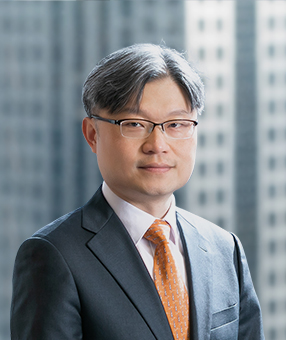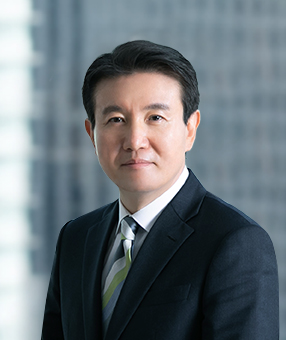In recent years, patent applications filed around the world by naming an AI machine as an inventor have spurred substantial discussions on AI-related inventorship issues. Korea is no exception. As we reported in the previous issue of our newsletter (LINK), the Seoul Administrative Court (SAC) has clearly denied the qualification of AI as an inventor in June 2023 by affirming the refusal by the Korean Intellectual Property Office (KIPO) to accept a patent application with an AI identified as the sole inventor, on the basis that only a natural person can be an inventor.
On May 16, 2024, the Seoul High Court, reviewing the case on appeal from the SAC, rendered a ruling affirming the SAC's decision. In this article, we will look into AI inventorship issues and the gist of Seoul High Court's decision.
Background of the Case
The patent application at issue was originally filed under the Patent Cooperation Treaty (PCT) as an international application, and then entered the Korean national phase on May 17, 2021 (Korean Appl. No. 10-2020-7007394). The PCT application listed an AI machine called "Device for the Autonomous Bootstrapping of Unified Sentience (DABUS)" as the sole inventor. DABUS was made by American AI systems developer Dr. Stephen Thaler, who was named as the applicant.
Dr. Thaler has filed patent applications in many other jurisdictions, including the US, the UK, Australia, Japan, Germany, New Zealand, Taiwan, India, South Africa, Israel and Australia. All of the applications in these jurisdictions except South Africa have been rejected so far mainly on the basis that AI cannot be an inventor. South Africa appears to be the only country that has granted a patent to an AI inventor. However, South Africa does not have a substantive patent examination system, and thus it does not appear that the inventorship issue was substantively examined at the national phase stage.
Reasoning of the Seoul High Court Decision
The lower court (SAC), in rejecting the qualification of AI as an inventor, held that under the Korean Patent Act (KPA), only a natural person who creates an invention can be named as an inventor. The SAC specifically relied on Article 33 of the KPA, which stipulates that "a person who creates an invention or his/her successor owns the right to obtain a patent on the invention."
During the appeal proceedings before the Seoul High Court, the applicant contested the above interpretation of the statutory language by the lower court. The applicant argued that the possibility of an AI creating inventions was likely not considered at the time of enacting the Patent Act and thus, the resulting legislative gap should be resolved through a rational legal interpretation. The applicant also contended that rights and obligations for inventions created by AI can be assigned to the owner or operator of the AI.
The Seoul High Court did not accept the applicant's arguments. Specifically, the High Court noted that accepting AI as an inventor under the current patent law provisions would go beyond the limits of legitimate legal interpretation, in light of the current level of development in AI technologies and society's perception of AI. The High Court further stated that if AI-generated inventions need protection in the future, it should be addressed through social discourse and legislative measures. This appears to leave open the possibility that the inventorship issue could be reconsidered with potential changes in relevant laws as AI technology advances in the future.
Additionally, the High Court unequivocally rejected the applicant's contention that the rights and obligations for the outcome created by AI can be assigned to the owner or operator of the AI, on the grounds that such an interpretation has no legal basis and is also completely inconsistent with the current patent law system.
For the other grounds of the lower court's ruling, the High Court expressed its agreement without providing specific details. For reference, the additional main grounds for the lower court's ruling are as follows:
- Under Article 2-1 of the KPA, an invention is defined as a "high level creation of a technical idea using the laws of nature." Such "technical idea" and "creation" are premised on human mental processes and mental activities, not on AI.
- To obtain a patent for an invention, an inventor must have legal capacity. Under Articles 3 and 34 of the Korean Civil Act, only a natural person or a corporation can be endowed with legal capacity. Since AI is neither a natural person nor a corporation, but rather may be viewed as a tangible thing in the form of software and hardware under the civil law, AI cannot be endowed with legal capacity.
- There is no sufficient rational basis to conclude that allowing AI to be an inventor would ultimately contribute to promotion of technological and industrial development in our society. Rather, it may pose a risk of atrophying human intelligence in the future, which in turn could adversely affect human innovation and research. Additionally, there is a risk that the patent system could become a means for protecting the rights and interests of only a small number of large companies that can monopolize powerful AI technologies.
The applicant has appealed the High Court decision to Korean Supreme Court on June 18, 2024.
KIPO Survey on AI Inventions
According to a press release by KIPO dated May 16, 2024, KIPO conducted an interesting public survey on AI inventions. This survey was carried out separately for AI experts and the general public (non-experts) from July 20, 2023 to September 30, 2023. About 1,500 individuals participated in the survey, including 292 experts and 1,204 non-experts. Some of the survey results are provided below.
First, the survey results revealed a gap in perception of the level of AI technologies between the experts and the general public. A large majority of the general public (70%) responded that the current AI technologies will be able to come up with solutions to technical problems on their own. In contrast, about 65.8% of the experts responded that AI is merely a tool. Also, the experts tend to believe that it is premature to recognize AI as an inventor or a rights holder of inventions. Specifically, about 60.8% of the experts opposed listing AI as an inventor, and about 75.6% opposed granting a patent to AI.
Additionally, significant portions of the experts and the general public held the views that if a patent were to be granted for an AI-generated invention, (a) the patent rights should be assigned to AI users (50.5% of experts and 44.0% of the general public), and (b) the patent term of AI inventions should be shorter than statutory duration specified in the KPA for human inventions (64.4% of experts and 75% of the general public).
KIPO plans to consider the survey results in leading the discussions on AI invention issues and coming up with appropriate and necessary legal standards and legislative changes.
Overall, the established legal principle under the patent law is that an inventor must be a natural person. However, it remains to be seen whether this legal principle will continue to hold. Future advancements in AI technology will likely prompt serious debates and discussions on procedural changes in favor of AI inventors.
Related Topics






